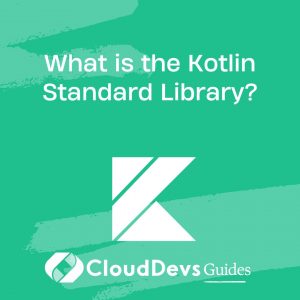What is the Kotlin Standard Library?
The Kotlin Standard Library serves as a foundational component of the Kotlin programming language, offering a rich collection of APIs and utility functions to streamline development across various platforms and use cases. It encompasses a wide range of functionality, including collections, I/O operations, concurrency primitives, and functional programming constructs.
One of the core principles of the Kotlin Standard Library is its focus on interoperability with existing Java libraries and frameworks. Kotlin seamlessly integrates with Java, allowing developers to leverage Java’s extensive ecosystem while benefiting from Kotlin’s modern language features and concise syntax.
The Kotlin Standard Library is designed to be concise, expressive, and intuitive, empowering developers to write clean and maintainable code. It adopts functional programming paradigms and provides high-order functions, extension functions, and lambda expressions to facilitate functional-style programming.
Additionally, the Kotlin Standard Library emphasizes platform independence, enabling developers to write code that runs efficiently across various platforms, including JVM, Android, JavaScript, and native platforms.
The Kotlin Standard Library is a comprehensive toolkit that equips developers with the essential building blocks to create robust, scalable, and cross-platform applications using the Kotlin programming language.








